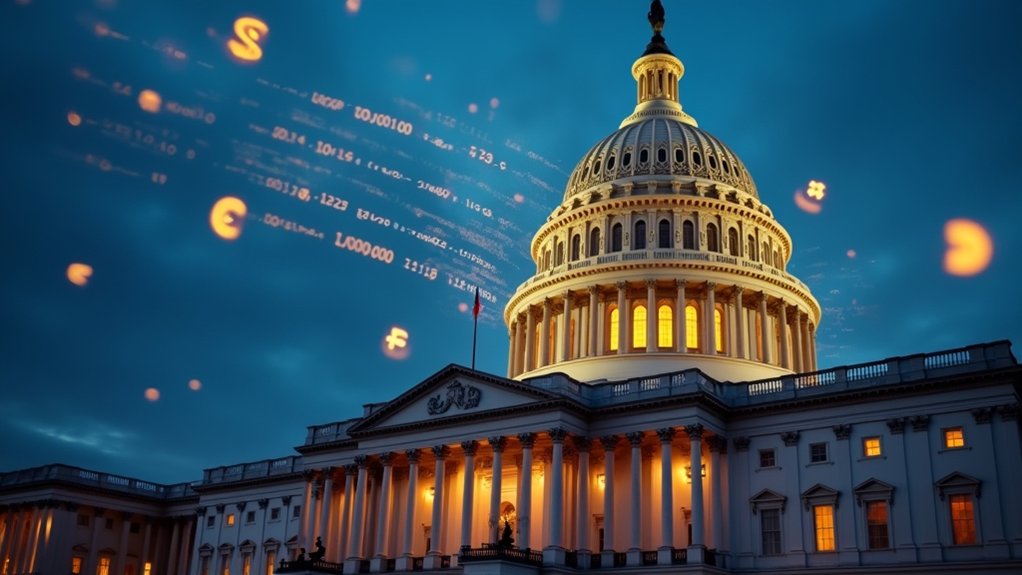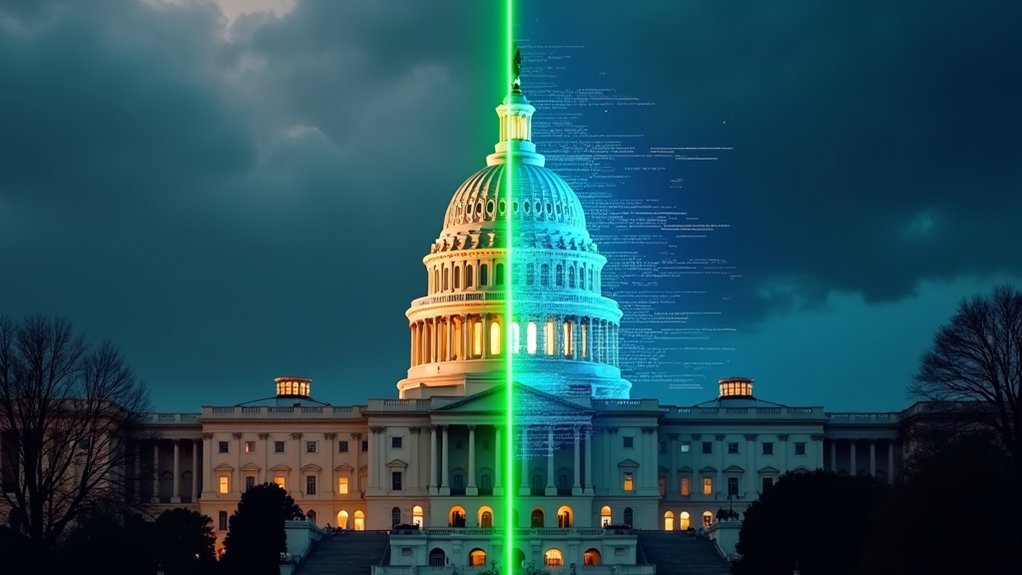Two competing stablecoin bills are racing through Congress, setting up what could be a landmark moment for crypto regulation in America. The House’s STABLE Act and Senate’s GENIUS Act – yes, they really named it that – have both cleared their respective committees with surprising bipartisan support. President Trump wants this done before August, and his crypto czar David Sacks is pushing hard to make it happen.
The STABLE Act, introduced by Representative Steil, sailed through the House Financial Services Committee in April. Not to be outdone, the Senate’s GENIUS Act, championed by Senator Bill Hagerty, got the green light from the Banking Committee with an impressive 18-6 vote. Both bills aim to wrangle the wild west of stablecoins into something resembling order.
Congress races to tame crypto’s Wild West, with competing stablecoin bills blazing through House and Senate committees with surprising speed.
At the heart of these bills is the concept of “permitted payment stablecoin issuers” – PPSIs for the acronym-obsessed bureaucrats in Washington. These could be traditional banks, newer fintech companies, or something in between. The real kicker? They might face regulation at both federal and state levels, because apparently one layer of bureaucracy isn’t enough. Issuers must maintain one-to-one reserve backing for all payment stablecoins they issue. The total market value has reached an impressive over $230 billion in circulation, highlighting the urgency for proper regulation.
The Trump administration has made crypto a surprising priority in its second term. It’s quite the plot twist – the same administration that once dismissed crypto is now its biggest cheerleader in Washington. The bipartisan support is even more shocking. Democrats and Republicans actually agreeing on something? In this political climate? Mark it down in the history books. Major companies like PayPal and JPMorgan are already leveraging stablecoins for international payments, showing the growing mainstream adoption of this technology.
But it’s not all smooth sailing. Critics are demanding stronger consumer protections, better bankruptcy safeguards, and stricter controls on illicit finance. House and Senate negotiators will need to hash out their differences, and that’s never a pretty process in Congress.
Meanwhile, the global financial community watches with interest – these bills could reshape how digital money moves around the world. The clock is ticking toward that August deadline. Will Congress deliver? In typical Washington fashion, they’ll probably wait until the last possible minute. But for once, both sides seem determined to get something done.





